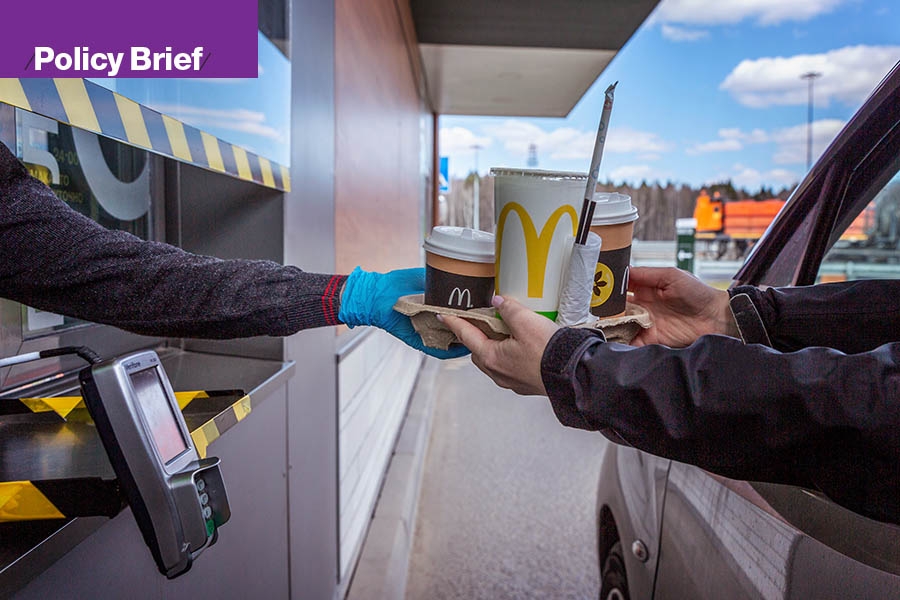Rep. Janelle Bynum (D-Clackamas) describes upcoming proposal to protect franchisees
If you have ever read Ray Kroc’s memoir, Grinding It Out, you’ll have pretty much all the information you need to know about the foundation of the franchise model in America. A quick and fascinating read, he details how, late in his life, he went from being a 52-year-old traveling salesman of milkshake machines to an executive sitting at the helm of one of the most successful and enduring entrepreneurial endeavors in American history: McDonald’s. The book came with the text from my introductory Hamburger University class, and it’s been by my side ever since. Perhaps I refer to it more than my engineering or MBA books because Kroc’s perspective was honest, relevant, practical and aspirational.
Today we see franchises in all corners of the business world: tax-preparation services, automobile dealerships, janitorial services, coffee houses and the like. If you have a novel idea and a like-minded businessperson has the cash and the energy, it can be the start of a successful franchise relationship. Franchising has created many once-unthinkable success stories for ordinary Americans, but it has also created some challenges that must be addressed if we are to strengthen the model and provide access to the American dream for all of those who seek it.
Two concepts from Kroc’s memoir have always stayed with me. First: “It has always been my belief that authority should be placed at the lowest possible level. I wanted the man closest to the stores to be able to make decisions without seeking directives from Headquarters.” Second, mutual success between franchisor and franchisee is vital. “My belief was that I had to help the individual operator succeed in every way I could. His success would ensure my success,” he writes.
Navigating the changing economic landscape of this coronavirus pandemic has forced all of us to look at the way we do business. We’ve all been asking ourselves if a choice is sustainable, profitable and right. During the early days of the shutdowns, we saw how systems of franchisees and franchisors worked together and hashed out the details of a new normal. Many contract conditions had to be temporarily negotiated: hours of operation, service-delivery models, cash handling, employee health and safety procedures, etc. And now with the challenges of available labor, this too is a point of negotiation.
Some franchisors are getting it right and working with their business partners to serve the public and maintain profitability. Others, like 7-Eleven franchisees, have been in the news for signaling that protective measures need to be put in place to rebalance the relationship between small-business owners and their corporate partners. In a recent survey, the National Coalition of Associations of 7-Eleven Franchisees (NCASEF), which represents the interests of more than 7,400 franchisees, said that a survey of their members found that “only 13% of franchisees who responded said overnight operations were financially profitable to them as franchise owners.” Between the persistent staffing challenges and the terms of franchise agreements, franchisees are hurting. This is a crisis-of-conscience moment, and we can’t even turn to the federal government for help.
For years the federal government has hesitated to intervene. As U.S. Sen. Catherine Cortez Masto from Nevada aptly put it in her recent report, “Government oversight is quite weak, which leaves franchise owners vulnerable to unfair practices by some franchise corporations.” As a result, I believe that now is the time for Oregon lawmakers to step in again.
Back in 2007, when the automobile industry was on the brink of implosion, Oregon lawmakers stepped in on behalf of local auto dealers and created legislation that protected the value of their enterprise, and signaled that we as a state valued fair dealing and small business. In our next legislative session, I will propose expanding similar protections to all franchises, based in part on the laws currently on the books in New Jersey.
Principles of the franchising bill I’m proposing:
a. Franchise contracts must be offered in Spanish at the request of the potential franchisee.
b. A franchisor cannot require a franchisee to release the franchisor or any other person from violations and/or liability before entering into a franchise agreement.
c. A franchisor may not prohibit franchisees from associating together for a lawful purpose.
d. A franchisor cannot require or prohibit changes in the management of a franchisee unless it is for a good reason and put in writing.
e. A franchisor may not “restrict the sale, transfer or issuance of stock to employees of the franchisee or to an heir of the estate of the principal owner, as long as basic financial requirements of the franchisor are complied with, and provided any such sale, transfer or issuance does not result in an actual or de facto sale of the franchise.”
f. A franchisor may not impose commercially unreasonable standards of performance upon a franchisee.
g. A franchisor may not include any terms or conditions which directly or indirectly violate legislation “in any lease or other agreement ancillary or collateral to a franchise.”
[Source: Prohibited Franchise Practices Under NJ Law | NJ Franchise Law (hnwlaw.com)]
While the legislation is still being negotiated with participation from stakeholders including franchisors, franchisees, state regulators and labor unions, the conversation about how Oregon’s small businesses are positioned for success is long overdue, and with this legislation, I know we’ll get back on track.
Janelle Bynum is a McDonald’s franchisee and a legislator serving East Portland and North Clackamas.
To subscribe to Oregon Business, click here.




